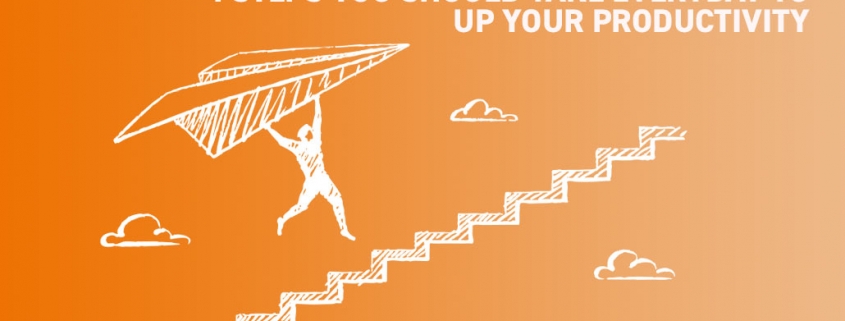They say procrastination is the thief of time. Days starting to blur together? Conversation at home running dry? Has procrastination replaced productivity? You’re not alone.
A lot of people shy away from routines, systems, and frameworks because they want to have “freedom.”
Well here’s the kicker: To free yourself from distraction, you’re going to need order.
If you want to beat procrastination, what you need is a system for doing work.
Procrastination has been around since the start of modern civilization.
Historical figures like Herodotus, Leonardo Da Vinci, Pablo Picasso, Benjamin Franklin, Eleanor Roosevelt, and hundreds of others have talked about how procrastination is the enemy of results.
Today, we’ve collected four key activities to engage in order to create a great productive balance between freedom and structure.
1. Do 150 minutes of moderate-intensity or 75 minutes of vigorous-intensity physical activity per week, or a combination of both.
This is the minimum amount of exercise recommended by WHO on a general basis, but also with the restrictions COVID-19 has brought about. These recommendations can still be achieved even at home, with no special equipment and with limited space. You can follow an online exercise tutorial on youtube and other media platforms, or you can go for a walk (but keep your distance from others).
If you find yourself sitting at your desk (or on the couch) tapping away on a laptop or tablet for most of the day, seriously consider getting a heigh-adjustable standing desk. Minimising the amount of time you spend ‘sedentary’ (sitting, lying down), makes a drastic difference for your health. With a standing desk, you can quickly raise or lower your desk to alternate between sitting and standing throughout your workday, as our experts recommend.
2. Get back to basics: A good night’s sleep, an early rise
If you need a reason to shut off your screens for a night, consider your waistline, your working life, and ability to empathise. Health correspondent Jane E. Brody reports for the New York Times that more and more research shows how our sleeping habits affect just about every phase of our lives–be it life expectancy, decision making, or ability to learn. In other words, if your attitude is that you’ll sleep when you’re dead, you’ll soon be dead.
3. Write down your goals for the day
Make these goals as visible to you as possible. Write them down on your phone calendar, in a notebook, on sticky notes you can attach wherever you spend most of your time. For the overachievers: Try getting up super early (like 4 a.m. early)–it can do wonders for your productivity.
Remember: The key to success is the freedom to fail.
4. Spend time away from smart gadgets and play a board game with your family
“We don’t have anything to talk about” is a good excuse, but who cares about talking when you can play games and then fight over who should win! Not only is it incredibly fun, it’s very healthy for our minds, our chemistry, and also helps relationships (yes, even when it all ends up in a fight). Read here for a closer look at the dramatic benefits of playing games.
One final tip before we conclude? Make that call. If a friend or a relative comes to mind, go ahead and check up on them. If you can, opt for a video call to keep those expressions alive and communicate more holistically, so take advantage of it! To conclude, we’d like to insist that you do not underestimate the virus and the effect that it can have on you and on our loved ones. Physical distance now helps us ensure that we can still all enjoy each other once this is over, We all have a part to play to get this over as quick as possible!


